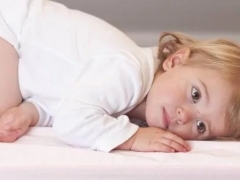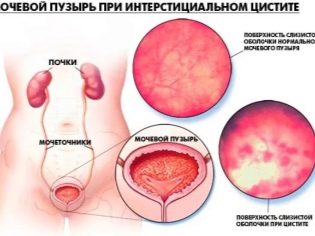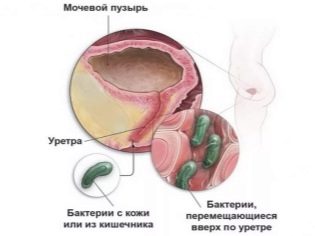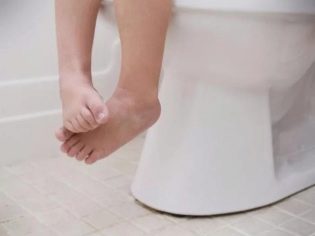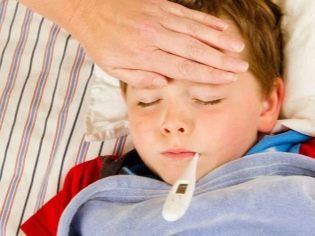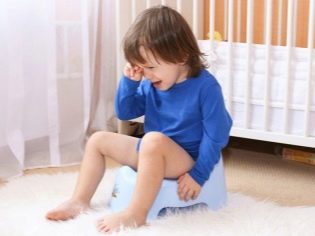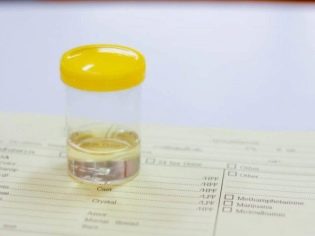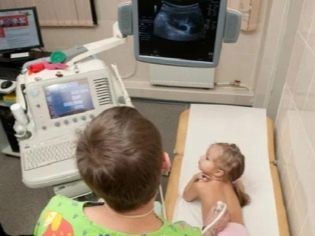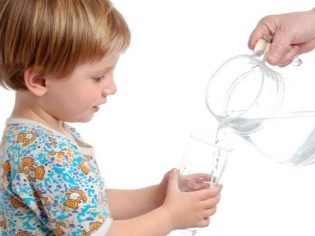Symptoms and treatment of cystitis in a child of 2-3 years
Inflammation of the urinary system in a child causes many adverse symptoms. Cystitis in very young children has its own characteristics and is characterized by a rather unpleasant course.
What it is?
Inflammation of the bladder is called cystitis. Both adults and children are susceptible to this disease. All parents should know the main symptoms of the disease, because timely diagnosis of the disease will prevent the development of many dangerous complications. According to statistics, girls are more susceptible to this disease.
Inflammation of the bladder can be an independent pathology or develop due to various other diseases of the internal organs. The course of the disease at an earlier age is usually more severe. Also, at 2-3 years, babies have a high risk of transition from acute to chronic cystitis.
Most often various infections result in the development of this disease. Bacteria promote inflammation in the bladder more often than other pathogens.
A decrease in the immune system speeds up the development of an infectious pathology in the children's body. The immune system of the baby of the first years of life is not yet effective enough, as in adults. Severe hypothermia, exacerbation of concomitant chronic diseases or stress can lead to impaired immunity, which can be a trigger factor for the development of inflammatory pathologies of the bladder.
The spread of the infectious process in a child’s body can occur in different ways:
- Hematogenous. In this case, the microbes enter the urinary tract and the bladder with blood flow. Also, this method of infection is quite common in the development of bacterial sepsis. Secondary foci of infection are the primary cause of cystitis in babies.
- Ascending The spread of infection occurs from the anogenital zone and the urethra.
- Downward. Pathogens enter the bladder from the kidneys and the distal urinary tract.
- Lymphogenous. The spread of infection occurs through the lymphatic vessels. In case of urological pathologies, pelvic lymph nodes are also involved in the process.
- Contact. The infection enters the bladder through its wall. This pathway of infection is possible in the presence of a pathological infection process in neighboring, adjacent organs.
According to statistics, babies up to three years the most common is the upward pathway of inflammation. This is due to the physiological characteristics of the child's body. Short urinary tract contribute to the rapid spread of infection in girls. In babies of the first year of life, an infection can enter the bladder from the vagina.
The effect of various provoking factors also leads to the appearance of cystitis in a child. Bathing in cold water, catarrhal diseases, hypothermia in cold weather, improperly chosen clothes for walking - all of these situations can cause the baby to show signs of inflammation of the bladder. The failure of the immune system only increases the risk of disease.
Children of the first three years of life are most susceptible to various infectious and urological pathologies.
Symptomatology
The main clinical signs by which you can recognize cystitis in a baby should be known to each parent. Timely diagnosis of the disease and quick access to a doctor will reduce the risk of possible complications in the future life of the child.To identify the symptoms of the disease in children in most cases is very simple.
The main symptoms of the disease include:
- Frequent urination. A sick child can ask for a pot a few dozen times a day. At night, the baby often wakes up and asks for the toilet. If the child still has diapers, then their parents have to change several times a day, because they quickly fill.
- Soreness of lower abdomen. A baby under three years old still cannot complain to his mother about the symptoms he has. You can notice this symptom only by carefully watching the child. Parents should start worrying if the baby is constantly holding the tummy or avoiding any contact with this area.
- Burning when urinating. It does not always occur. When you appear can significantly disrupt the behavior of the child. Burning during urination is more often manifested by a change in the overall condition of the baby. The baby becomes more capricious, it may cry during urination.
- Discoloration of urine. Usually, parents detect this symptom when the contents are drained from the pot. Urine with cystitis may become turbid. In some cases, it changes its smell - it becomes more sour, smelly. These clinical signs are most pronounced in the bacterial form of cystitis.
- The deterioration of the general condition. The child becomes more capricious, apathetic. Kids play less with their favorite toys, try to avoid active games. A sick child's appetite decreases and sleep worsens. During the night, the baby may wake up several times, he has problems falling asleep.
- The appearance of puffiness on the body. Occurs in severe course of the disease. The appearance of edema on the body indicates that an excess amount of fluid accumulates in the body. Long-flowing chronic cystitis often causes severe swelling in a child. Localized swelling with more on the face and under the eyes.
- Fever. This symptom is optional. Usually, body temperature in cystitis rises to subfebrile numbers. Subfebrile condition is unstable. With a severe course of the disease or with the development of complications, the body temperature can rise to 38-39 degrees.
- Increased anxiety. To notice the onset of the disease, especially in mild form, is quite difficult. Often the first sign of the disease is increased anxiety of the baby. Sick child becomes less smiling, trying to avoid contact with others. In some cases, the baby seems less attentive.
Diagnostics
When the first signs of the disease appear, it is very important to immediately consult a doctor. Initially, you can go for a consultation with a pediatrician. However, urological diseases in babies are handled by pediatric urologists. These specialists have the necessary knowledge and experience with such diseases.
To establish the correct diagnosis of a clinical examination alone is not enough. The diagnosis of cystitis also includes Mandatory urinalysis. To conduct this analysis, parents must collect material for research.
Before urine collection, boys should rinse the foreskin well, and the girls the entire anogenital zone from the vagina to the anus. Such training will help to get a more accurate result in the future.
In the presence of inflammation in the bladder in the general analysis of urine, the total number of leukocytes increases significantly. With some concomitant pathologies of the kidneys and urinary tract, the laboratory test will also show protein loss or a change in specific gravity. For differential diagnosis, the pediatric urologist may recommend Ultrasound of the kidneys and bladder. This study is being conducted for medical reasons.In some cases, babies are referred for additional consultation with a pediatric gynecologist in order to rule out inflammatory diseases of the vagina and genital tract, which could lead to ascending cystitis.
Treatment
The tactics of treatment of cystitis in young patients may be different. It is made taking into account the physiological features of the baby, its initial state, as well as the presence of concomitant chronic diseases.
The pediatric urologist determines the tactics of treatment of the child, necessarily agreeing it with the parents.
For the treatment of inflammation of the bladder in babies are used:
- Compliance with the daily routine. During the acute period of the disease, the baby must be at home. If a child attends a kindergarten or other pre-school educational institution, then he must be in quarantine while he feels worse. The presence of high body temperature in a baby is an indication for compliance with bed rest. Such a necessary measure will help protect the children's body from the possible development of complications.
- Drinking mode. Abundant urination can lead to a pronounced impairment of water and electrolyte balance. To compensate for the loss of the child's fluid should be additionally soldered. You can do this with ordinary boiled water. Homemade cranberry or lingonberry juice will be a great addition to the treatment.
- Medical urosepticheskie drugs. Appointed only by a pediatric urologist under strict clinical indications. The choice of the drug and its course dosage remains with the attending physician. These funds are written out only at the exchange rate.
- Antibiotics. They are prescribed for bacterial types of cystitis. The duration of the appointment of antibiotic treatment is usually 7-10 days. These medicines have multiple side effects and should not be used on their own. The most optimal choice of antibiotic is carried out after performing bakposseva urine with the determination of sensitivity to various antibacterial agents.
- Phytotherapy. The most gentle way to treat cystitis. Bearberry, lingonberry leaf, cranberry, blueberry broth - excellent herbal remedies to eliminate the adverse symptoms of cystitis in children. Allergic reactions may occur when taking these drugs. However, they are rare in babies.
For information on how cystitis manifests in children, see the following video.
